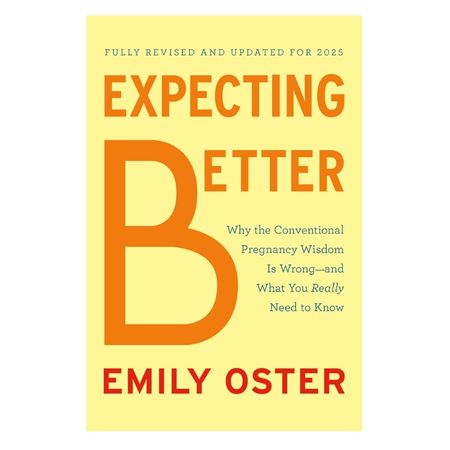
What Happens If A Pregnant Woman Dies? There’s nothing more tragic than losing a life before its time. The death of a pregnant woman can be an exceptionally heartbreaking loss, leaving loved ones to wonder “What will happen to the baby?” For families facing this devastating situation, the uncertainty around the fate of the unborn child only compounds their grief. Though such a tragedy may seem unthinkable, preparing for the worst is wise.
Understanding what may happen if a pregnant woman dies can bring some peace of mind during a time of incredible upheaval. While the physical and emotional toll on those left behind is immeasurable, awareness of the possibilities empowers families to shape how the story ends. This knowledge plants seeds of hope that can blossom into a meaningful legacy.
Related: The Meaning of Dreaming a Pregnant Woman: A Comprehensive Guide
What Happens If A Pregnant Woman Dies?
If a pregnant woman dies, the fetus will also die shortly after unless delivered quickly. This is because a fetus relies entirely on the mother for oxygen and nutrients through the placenta and umbilical cord. Without the mother’s heartbeat to circulate oxygenated blood, the fetus will become deprived of oxygen within minutes. Lack of oxygen leads to irreversible brain damage and eventually death.
The fetus also cannot receive nutrients without the mother, leading to hypoglycemia and growth impairment. So the death of the mother cuts off the supply of oxygen and nutrients that are essential to the fetus’s survival. The exact timeframe for how long a fetus can survive without oxygen varies based on gestational age, but fetal death is imminent without quick delivery.
Related: Inside the Mind of a Pregnant Woman: A Hilarious Peek
How Long Can the Fetus Survive?
The potential for a fetus to survive outside of the womb depends mainly on its gestational age. At 22-24 weeks gestation, a fetus has approximately a 20-35% chance of survival with intensive medical intervention. Between 25-27 weeks gestation, survival rates rise to approximately 50-70%. After 28 weeks gestation, survival rates are 80% or higher, especially with proper neonatal intensive care.
Factors besides gestational age that impact a fetus’s chances of survival include birth weight, gender, access to quality medical care, and whether the mother received corticosteroids prior to delivery. Corticosteroids speed up fetal lung development and significantly reduce the risks from preterm birth. Overall, medical science has pushed back the gestational age limits of viability. However, outcomes remain very uncertain for extremely preterm infants born before 25 weeks.
Related: Can A Pregnant Woman Go To A Funeral
Emergency C-Section
If a pregnant woman suffers cardiac arrest or another life-threatening condition, doctors may perform an emergency C-section in an attempt to save the fetus. This is only done in rare, desperate circumstances and when the fetus is developed enough to survive outside the womb, usually at least 23 weeks.
An emergency C-section under these traumatic circumstances is risky for the infant, but may offer the only possibility of life. The surgery focuses exclusively on delivering the baby as quickly as possible, not on preserving the mother’s life. It gives the fetus a small chance to live even if the mother does not survive.
Some key factors in whether an emergency C-section is performed include:
- Gestational age of the fetus
- Status of the mother and prognosis/cause of her critical condition
- Location of the hospital and availability of a NICU to care for extremely premature babies
- Parents’ advance directives and end-of-life wishes
An emergency C-section is traumatic and emotionally difficult for the surviving family members. However, it may give a baby the chance at life even after the mother has died or is near death. This heartbreaking and ethically complex decision should always respect the wishes and values of the parents.
Related: Can A Pregnant Woman Take A Lie Detector Test
Donation of Pregnant Woman’s Organs
The possibility of organ donation from a deceased pregnant woman raises difficult ethical questions. The two lives involved – the mother and unborn baby – complicate the decision.
There are a few key factors to consider regarding organ donation from pregnant women:
- Viability of the fetus – If the fetus is viable and could potentially survive outside the womb, the decision becomes more complex. The mother’s wishes for organ donation must be balanced with the health of the viable fetus.
- Advance directives – If the pregnant woman has clearly outlined her wishes for organ donation in an advance directive or living will, this should guide medical decisions after her death. However, the impact on a viable fetus may still require ethical analysis.
- Surviving family wishes – The family’s wishes also carry weight, both legally and ethically. This is especially true for an unborn child, who cannot voice their own wishes. The family may wish to prioritize the health of a viable fetus.
- Risks and benefits – Donation of organs like the heart and lungs make fetal survival impossible. But donation of organs like the liver may be possible while still giving a fetus a chance to survive. Doctors must carefully assess medical risks and benefits.
- Individual case factors – Each situation will vary based on the gestational age of the fetus, the mother’s exact medical status, the specific organs to be donated, and the viewpoint of the family. Individual factors should be considered.
Overall, organ donation from pregnant women is an extremely sensitive issue from an ethical perspective. While the mother’s wishes are important, they must be balanced against the interests of a viable fetus and distraught surviving family. These scenarios require compassionate medical and ethical analysis tailored to the individual circumstances.
Related: What A Pregnant Woman Needs From Her Husband
Psychological Effects on Surviving Family
The death of a pregnant woman can be especially traumatic for the surviving family members. The grief over losing a wife, daughter, sister or friend is profound enough on its own. But the additional loss of an unborn baby can make the bereavement process particularly complex and challenging.
Family members often struggle with guilt and regret over not being able to save the mother and child. They may replay “what if” scenarios endlessly in their minds. Counseling and support groups can help families work through these feelings and come to terms with the loss.
Partners and parents may bear the brunt of the emotional impact. The grief can put immense strain on marriages and relationships. There is also often a lost sense of purpose, especially for fathers who were expecting a child. Pouring one’s energy into parenting surviving children, appreciating fond memories, and fostering healing through community support can help cope with the loss.
Explaining the death to existing children in the family is also difficult. Parents must find age-appropriate ways to talk about the loss without causing excessive distress. Maintaining routines, allowing kids to ask questions, and offering reassurances are key. Some families benefit from professional counseling to guide children through the grieving process.
While the grief never fully disappears, families do gradually adjust to life without their loved one. Cherishing the mother’s memory, commemorating anniversaries, and celebrating milestones she didn’t get to see can help the healing process. Support groups connect families grieving similar losses. With time, resiliency, and help when needed, families can move forward while keeping the memory of their lost loved one and unborn baby alive in their hearts.
Related: Why Would A Man Want To Date a Pregnant Woman
Making End-of-Life Wishes Clear
No one likes to think about their own mortality, but end-of-life planning is especially important for pregnant women. Should the unthinkable happen, you’ll want your wishes for medical treatment and life support, organ donation, and guardianship of your children to be clearly documented. This will ensure your desires are honored and prevent unnecessary confusion or conflict for your loved ones.
The two most important documents are a living will and medical power of attorney. A living will specifies your wishes for medical care if you become incapacitated and unable to communicate. This includes things like resuscitation, breathing machines, feeding tubes, pain medication, and more. Your medical power of attorney designates someone you trust to make medical decisions on your behalf if you’re unable to do so yourself. This person should understand your values and wishes and be willing to honor them, even if they conflict with their own desires.
Take time now to have frank conversations with your chosen decision-maker and other loved ones about your priorities and preferences. The more your loved ones understand what matters most to you, the better they’ll be able to abide by your wishes if the need arises. While these conversations can be difficult, you’ll all breathe easier knowing your choices are documented and respected.
Related: Can A Pregnant Woman Swim In A Chlorine Pool?
Preparing Children for Loss
Losing a parent during pregnancy is an immense hardship for a child. Though difficult, having age-appropriate discussions about the loss can help children process the grief.
When talking with young toddlers, use simple language about the person “dying” or “gone to heaven.” Avoid euphemisms like “sleeping” as this can be confusing. Answer questions briefly, honestly, and repetitively as needed. Offer comfort through routines, nurturing touch, and remaining calm.
For preschoolers, explain death more concretely as the body stopping functioning. Reassure them they will still be loved and cared for. Encourage them to express emotions through play, drawing, or books. Maintain regular schedules and validate any regression like bedwetting.
With school-age children, emphasize death’s permanence and that no one is at fault. Allow them to participate in mourning rituals if they desire. Expect some behavior changes and anger, allow creative outlets for processing. Maintain patience and understanding.
For preteens and teens, discuss death more philosophically. Encourage them to memorialize the deceased through writing, art, or community service. Allow them to be more independent but keep communication open and show love and support. Respect their growing maturity and deepening comprehension of mortality.
Being open and honest, allowing creative processing, and providing stability through routines can help children at any age cope with the devastating loss of a parent during pregnancy. Extra love and patience is required as they grieve. With time and support, children can adapt to loss, honor the deceased parent’s memory, and continue forward.
Related: When Can a Woman Get Pregnant?
Seeking Bereavement Support
The death of a loved one is always difficult, but the loss of a pregnant woman can be especially devastating for family members. Spouses, partners, children, parents and siblings may struggle with intense grief and trauma. Seeking professional counseling or a support group can help the bereaved cope with the loss.
Counseling
Meeting with a grief counselor or therapist allows surviving loved ones an opportunity to process their emotions with an objective, compassionate listener. A counselor can help identify unhealthy coping mechanisms and provide tools for managing grief in a healthy way. Counseling also gives the bereaved a chance to speak openly in a judgement-free space.
Support Groups
Joining a support group with others who have experienced similar loss can help surviving family members feel less alone. Support groups allow members to share stories, learn coping strategies and receive empathy from people who understand their pain. Many hospitals, religious centers and community organizations offer grief support groups specific to the loss of a pregnancy or infant. These groups allow families to connect with others sharing their experience.
Related: Should You Take Progesterone If You Are Trying to Get Pregnant?
Prepare for Every Scenario with This Pregnancy Guide

Closure
The loss of a pregnant woman is a profound tragedy for her loved ones. Even though the focus is often on saving the baby, it’s important not to overlook the immense grief and emotional turmoil for those left behind.
The surviving family members will need significant support and comfort to help cope with this devastating loss. Therapists, support groups, close family and friends can provide a listening ear when needed. The grieving process takes time, and each person will experience it differently. Having patience, grace and understanding for one another is so important.
While the loss can never be replaced, the surviving baby, photos, memories and stories about their mother can help provide some closure and comfort over time. The love she had for her family and unborn child lives on through them. Honoring her memory, supporting each other through grief, and living life to the fullest as she would have wanted are all ways to pay tribute to her. With this gentle care and compassion, families can slowly move forward while keeping her spirit in their hearts.
Though words cannot take away the pain, the hope is that families can find even the smallest bit of peace. The baby she nurtured represents the circle of life continuing, and a part of her lives on. Her loved ones will forever cherish the time they had with her, during pregnancy and beyond. May her memory be a blessing.
Related: 20 Things to Do After Discovering You’re Pregnant (with a Twist!)












